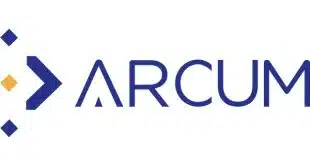Discover Financial Services this week unveiled a teen-oriented prepaid card called Current by Discover. Current is the latest entrant in a niche that includes the Visa Buxx and Allow MasterCard, prepaid cards that may have garnered more headlines than users. But Discover says its new card has straightforward pricing and other features that will resonate with parents and teens alike, enough to overcome any resistance to the $50 annual fee. “If you do your shopping on these products, you'll see this is by far a better value,” says Mike Boush, vice president of marketing strategy and new initiatives at Discover. Current cards are issued on negotiated order of withdrawal (NOW) accounts held by the Discover-owned Discover Bank. Up to three cards can be issued per account, which is insured by the Federal Deposit Insurance Corp. Current has a monthly fee of $5, which works out to $60 per year, but account holders can save $10 by paying $50 at once per year. Cardholders also have zero liability in case of unauthorized use after the card is lost or stolen. “The difference between this card and other cards in the prepaid space is it has the protections of a debit card,” says Boush. But he adds that Current doesn't have some of the nasty downsides of many debit cards, such as overdraft fees generated by transactions that take the account balance below zero. Such transactions won't be authorized on Current cards. Nor does Current have common prepaid card charges such as reload and inactivity fees. Users get four free ATM transactions per month; after that Discover charges 50 cents per transaction. The parent-applicant must state the Current user is age 13 or older, though young adults age 18 or older can get their own accounts. Accounts can be reloaded from other Discover accounts or from other accounts, including via the automated clearing house. The card has both signature and PIN functionality. Features designed to appeal to teens include the choice of one of seven card designs, coupons or discounts from partner merchants, and alerts by text message to cell phones or by e-mail. The alerts can give warnings about low balances, Boush cites as an example. Parents can manage a Current account online and set daily, weekly, and month spending limits and block transactions from merchant categories they deem inappropriate. That functionality comes to Discover from prepaid card application developer and processor eCommLink Inc., Las Vegas. Boush says Discover developed the card in response to demands from its customers for a product to help teens and their parents track spending. And at least for now, Discover will market the card within its cardholder base of approximately 50 million consumers. That could be the right strategy in trying to succeed in what has proven to be a difficult market, according to Tim Sloane, vice president of Mercator Advisory Group Inc.'s prepaid unit. Sloane doesn't have a tally of how many Visa Buxx, Allow MasterCards, or other teen-oriented prepaid cards are in issue. But he estimates “it's a very small component of the overall market.” Riverwoods, Ill.-based Discover, which has always cultivated an image as the family-oriented card for Middle America, thus could find a receptive audience in its back yard. “What differentiates this product from the others is that installed base of Discover cardholders,” says Sloane. Yet Current's sizable potential audience and all its bells and whistles do not guarantee success, Sloane adds. The teen-card market's history may indicate that not enough people will be interested, regardless of features. “If the problems in the past have been lack of audience and focus, I think the problem will be solved,” he says. “If the problem in the past is lack of interest, I don't think that problem will be solved.”
Check Also
Blockchain Token First Noted and other Digital Transactions News briefs from 3/25/25
Two U.S. banks, Custodia Bank and Vantage Bank, executed what they say is the country’s first …



